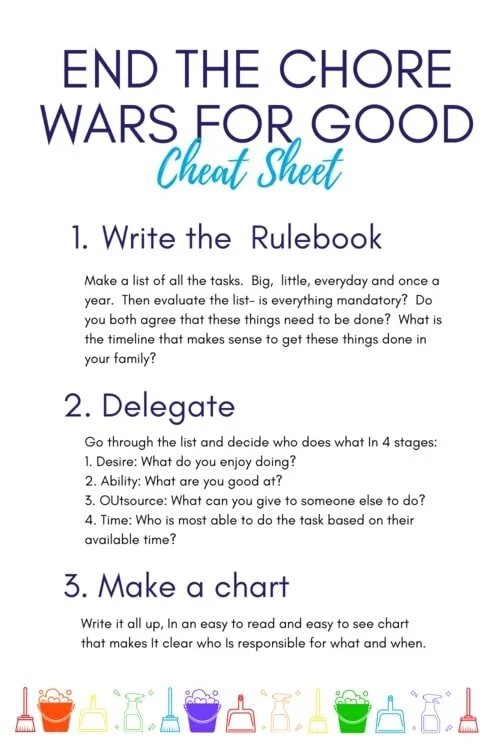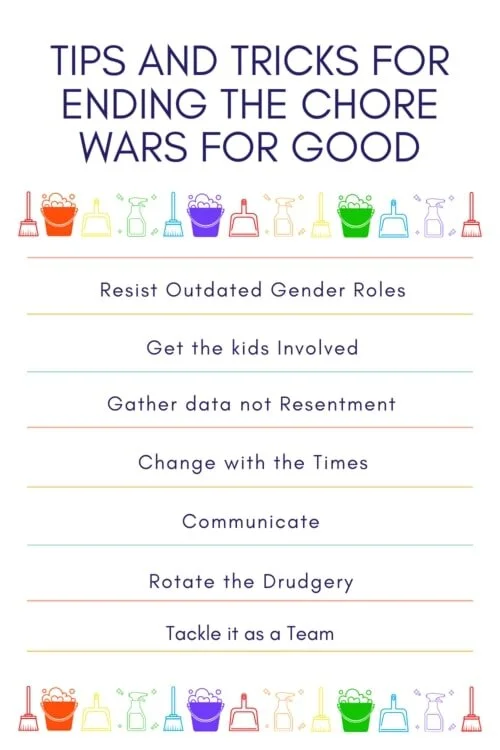I remember the first time I went on a business trip after my oldest son was born. I was sitting in boring conference session after conference session and my mind kept wandering to the same fantasy over and over. It went like this: when I got home I would walk in our front door and be greeted by running bear hugs from both of my guys. My son would be thrilled his mama was home and tell me everything about his past few days, and my husband would be filled with love and gratitude- and utter the words which would be magic to my ears: "Babe, I missed you so much. And I'm amazed- how do you do it all? It was so hard!"
Did that happen?
Of course not. There were hugs, there were "I missed you's," but there was not an outpouring of gratitude or recognition of all that I do.
And truthfully? I was a little crushed.
It took me a while to figure it all out, but I slowly realized several things:
I obviously needed a bit more acknowledgment for the work I do. (And if I needed more, then I probably needed to give more too)
I had been holding more resentment about the distribution of labor than I realized
We had fallen into the dreaded ADHD relationship dynamic. I, the non-ADHD partner, had taken on more than my fair share of the household duties and, in turn, more than my fair share of the resentment.
Parent/Child Dynamics:
This pattern is so common there is a psychological term for it: the parent/child dynamic. The parent/child dynamic is when one partner (often the non-ADHD partner) takes on the parent's role- doling out chores, nagging, and feeling the responsibility to assure they are done. This dynamic is pervasive throughout ADHD marriages and toxic. Why?
Because it kills two incredibly valuable things: intimacy and self-esteem. Because really- what is more of a romance killer than nagging, yelling, or resentment? And who feels good about themselves when they are nagging or being nagged?
Once I saw what was happening, I realized: We needed to talk—big time.
So, we did. We had a big talk. And one of the things that became very clear from that conversation was that I had taken on a huge number of responsibilities because I felt I had to.
I felt like the only way they would be done and done well was if I did them. But, you know what? That was because I was using my own timetable and my own expectations. In my mind, dishes needed to be done immediately- and therefore, any dish in the sink brought colossal resentment. But who said dishes need to be done right away? I made the bed every morning because my own rulebook said that beds needed to be made every day- my husband? His rulebook didn't agree.
My husband managed the week when I was away just fine. Not because single parenting is easy but because he is super capable-- particularly when playing by his own rules and his own timing. Were the dishes done right away? No. But did he leave them so long they attracted pests? No. When I was gone, he was free to use the pressure of time and necessity to get things done, and he was able to enjoy his free time.
Find the rulebook that works for you
It took several more big talks, but eventually, we understood that we needed to write the rulebook together. If either of us was going to insist on our own timing and our own expectations, we would have a lot more resentment and a lot more upset. So, we went about the hard work of making intentional choices about the expectations of the house, who was going to do what, and what made the most sense regarding the distribution of chores.
Our process took many iterations and several years and as our jobs and responsibilities have changed over time, we have returned to the drawing board a few times. As we have done so, throughout the years, we have developed a process that eases the tension and assures everything is taken care of.
The 3 Step Process for Ending the Chore Wars
Finding peace among chores can be as straight-forward as this 3-step process.
Take an hour, sit down with your partner, your children or your roommate and follow this system and you will be on your way to a calmer, more peaceful home.
Step 1: Write the rulebook
What needs to be done? What tasks are mandatory? How often do they need to be done? You don't need to worry about who does them yet- just what. Do beds need to be done? Do dishes need to be done after every meal or only when there are none left? This is a place where you want to be realistic but also aware of what you need. Does it make you anxious to have a pile of dishes in the sink? Does the idea of tidying every evening fill you with dread?
Talk it all through- see what is essential to each of you and then write each task down.
Step 2: Delegate
Now you have your master list, it’s time to start doling the tasks out. But don’t just hand them out one by one- take 4 passes at it, each with a different principle in mind:
Pass 1: Desire
The first pass is the things that you enjoy (or at least don't hate). For example, I enjoy gardening, and my husband loves fixing things. So I make the window boxes and backyard pretty, and he repairs everything we break (and believe me- with 2 rambunctious boys we break a lot!).
Pass 2: Ability
The next pass is the tasks you are good at- even if you don't love them.
I'm good with numbers, so bills/ taxes are mine (not my favorite thing but within my skill set). My husband is great at electronics and so he is in charge of all things electrical.
Pass 3: Outsource
Everything left on your list are things that you neither enjoy nor do you feel good at. Are there any that you can outsource? Of course, you can do this by hiring someone to do them for you. But, you can also get creative and share labor with friends or neighbors (soup swaps, buy nothing groups, and nextdoor apps are great places to find these types of arrangements).
Pass 4: Time
Let's be honest- the rest of the tasks are drudgery. These tasks you want to divide according to timing. Does one of you have a long commute? That person may not be in charge of dinner then. Does one of you work from home? They may have dog-walking responsibilities. Consider when tasks need to be done and how much time each of you has when not working. Then distribute them accordingly.
Once all the tasks have been distributed, you want to look over each person's master list: does it look fair? Does it look manageable? If so- great work! If not, work together to figure out how to make it more doable- do you need to create a little more room in your budget to get some more help? Do you need to change your expectations? Are there other supports you can put in place to get it all done
Step 3: Make a Chart
Now you have the plan. It’s time to make a chart. No- chore charts are not just for teaching kids responsibility- they are an excellent way of reminding all brains- not just young brains- of the things that we need to do.
The other reason chore charts are essential in an ADHD relationship? They take the struggle out of the couple. Suddenly, rather than one person reminding the other all the time, there is an external reminder. And because this external reminder was mutually agreed on, it can be easier to enforce.
The system is relatively simple, but a history of emotion, hurt and cultural programing can complicate it quickly. Here are some tips and tricks to keep this system a painless and effective as possible.
Chore Tips and Tricks:
Ending the chore wars can feel like it requires expert level diplomacy to maneuver through the minefields of resentment and resistance.
These tips and tricks will help you come together and tackle this solvable problem like the loving team that you are.
Resist gender dynamics: Just because your mother vacuumed and your father opened the mail doesn't mean that's how your relationship needs to work. Lean on ability and interest, not out-dated gender norms.
Rotate the drudgery jobs if boredom becomes an issue. If it becomes too tedious to get the same drudgery job done every day or every week, try rotating them (a chore wheel is a great way of doing that) to add a bit of novelty into your housework.
Get the kids involved. Chores aren't just for the grownups- get your kids involved in the process- have them help you come up with the master list, and choose which things they enjoy and are good at. Get them involved in the whole process- not only will you get some more buy-in from them, but you will also be modeling excellent problem-solving and responsibility-taking.
Communicate. When things get missed, when resentment starts to grow, talk about it. Don't let it build to an argument- start the conversation early, before all the emotion begins to cloud your reasoning.
Gather data, not resentment. Experiment. Your first pass at this might not be quite right. That's ok- as you try out the system, some things will come up. Some things will be illuminated. Great- gather that data, talk about it, and use it to make it even better.
Change with the times. When we first made our chore chart, I worked part-time, my husband was working full-time, and we had a toddler. Now, we both work full time and have 2 older kids. Responsibilities, time, and expectations are different than they were. Each time something significant changes in our household, we have to return to the drawing board and start again. That's ok- the process will be more comfortable and more efficient each time you do it.
Review it weekly at a team. Find a time and tie it to something that happens regularly- like while you clean up the 15 tiny dishes from taco tuesday. Use that time to review the chore chart- how did it go? Any feelings or thoughts developing? Anything that didn’t get done? What supports would help assure those things get done next week. Remember, you are a team, approach it as one and the conversation will go so much more smoothly.
Tackling the chore wars can feel like a tricky process- there are a lot of feelings involved. Often times, both partners feel underappreciated and undervalued. But if you enter the conversation with the intention of teaming up together to make the system work for both of you, you can find peace. So, give it a shot- and don't skip the chore chart - it might feel silly at first but it’s crucial!
And don't forget to let me know how it goes in the comments below. I can't wait to hear it!
Ready to shift from
meltdown to mastery?
This online course has been designed specifically to help teach the strategies ADHD brains need to help them move from overwhelm and meltdowns to confident emotional mastery.
Want to know more about
thriving with ADHD?
Check out these other articles:












Is Your ADHD Partner Not Listening? Here's Why, Along with 8 Game-Changing Solutions